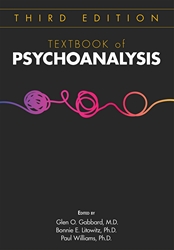Cognitive-Behavior Therapy for Severe Mental Illness
An Illustrated Guide
View Pricing
Description
Mastering cognitive-behavior therapy (CBT) for the common, yet difficult-to-treat aspects of severe mental illness has now been made easier with Cognitive-Behavior Therapy for Severe Mental Illness. A proven, effective treatment for patients with severe mental illness, CBT is illuminated in an insightful volume that boasts an abundance of learning exercises, worksheets, and checklists—plus video demonstrations on DVD that offer an inside look at CBT methods in use.
This is the only book to present a comprehensive CBT approach that can be used across the broad range of severe Axis I disorders to prevent relapse, promote treatment adherence, reduce symptoms, and maintain treatment gains. The authors, all internationally recognized experts in using CBT for severe mental illness, provide a host of functional strategies for treating patients with schizophrenia, bipolar disorder, and treatment-refractory depression. Their easy-to-read guide covers specific symptoms in detail and promotes practitioners' skill building—including how to design useful interventions, provide effective psychoeducation, and engage patients in effective therapeutic relationships. The eighteen videos show CBT in action, demonstrating such scenarios as tracing origins of paranoia and formulating an antisuicide plan. Readers seeking to learn or improve their use of CBT for severe mental illness will
- Master the key processes of engaging, assessing, normalizing, educating, and formulating
- Learn methods to help patients reduce delusional thinking, cope with hallucinations, and target hopelessness, suicidality, low energy and interest, and poor self-esteem
- Prevent relapse in bipolar disorder through such methods as monitoring symptoms and promoting good sleep
- Address interpersonal problems common in patients with severe mental illness, showing how to build support and cope with dysfunctional or terminated relationships
- Help patients become better organized in their thinking and reduce problems with maintaining concentration
- Apply CBT procedures to improve negative symptoms in schizophrenia, such as attention deficit and anhedonia
The book is an ideal companion to the authors' popular introductory text Learning Cognitive-Behavior Therapy, building on its critically acclaimed methodology to offer guidelines for effective treatment. Cognitive-Behavior Therapy for Severe Mental Illness shows how CBT enhances pharmacotherapy and helps practitioners develop important skills in treating challenging clinical problems.
Contents
- Preface. Introduction. Engaging and assessing. Normalizing and educating. Case formulation and treatment planning. Delusions. Hallucinations. Depression. Mania. Interpersonal problems. Impaired cognitive functioning. Negative symptoms. Promoting adherence. Maintaining treatment gains. Appendix 1: worksheets and checklists. Appendix 2: cognitive-behavior therapy resources. Appendix 3: DVD guide. Index.
About the Authors
Jesse H. Wright, M.D., Ph.D., is Professor and Associate Chair for Academic Affairs at the University of Louisville School Of Medicine in Louisville, Kentucky.
Douglas Turkington, M.D., is Professor of Psychosocial Psychiatry, Department of Neurology, Neurobiology, and Psychiatry, at the University of Newcastle-upon-Tyne, Royal Victoria Infirmary, in Newcastle-upon-Tyne, United Kingdom.
David G. Kingdon, M.D., is Professor of Mental Health Care Delivery, Department of Psychiatry, at the Royal South Hants Hospital and University of Southampton, United Kingdom.
Monica Ramirez Basco, Ph.D., is Clinical Associate Professor, Department of Psychiatry, Division of Psychology, at the University of Texas Southwestern at Dallas, in Dallas, Texas.
Companion Products
Related Products
Carousel Control - items will scroll by tabbing through them, otherwise arrows can be used to scroll one item at a time










